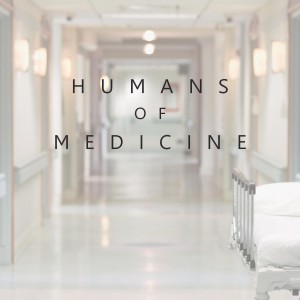 Annie Robinson (52 Posts)
Annie Robinson (52 Posts)Curator of Inside Stories and in-Training Staff Member
Columbia University
Annie Robinson completed a Master of Science in Narrative Medicine at Columbia University in 2014. She previously studied the healing power of stories as an undergraduate at NYU’s Gallatin School of Individualized Study.
Annie works as Narrative Coaching Specialist with Eating Disorder Recovery Specialists, helping individuals in the early stages of eating disorder recovery through mindfulness, meditation, yoga, and narrative practices. She is also the Program Officer at Health Story Collaborative, a non-profit that creates forums for individuals to tell their stories of personal health challenges, and curates another oral narratives projects called On the Road to Recovered: Voices from the Eating Disorder Recovery Community.
Annie is a coordinator and full-spectrum doula for The Doula Project in New York City, providing compassionate care for women during experiences of abortion, miscarriage, and fetal loss.
As a yoga teacher, writer, educator, and co-founder of NYC-based wellness community Pause, Breathe, and Connect, Annie shares her passion for integrative approaches to wellbeing. She is dedicated to creating spaces for people to explore the healing potential of interweaving of stories, spirituality, and somatic experience.
Inside Stories
Inside Stories is an oral narratives project which invites medical students to share their experiences in medical school in the form of brief podcasts published and archived on in-Training. The project aims to provide a means of personal healing, self-realization and empowerment through the sharing and receiving of personal stories, as well as to cultivate community among students in the often isolating medical school environment. The title Inside Stories reflects the project's mission to encourage students to go inside themselves and bring forth things that often go unspoken. It also represents the inside look listeners are granted into the sometimes private, challenging and confusing experiences students may have.
Made possible in part by a grant from the Arnold P. Gold Foundation and FJC.


How can doctors-in-training take advantage of the distinct liberty they have to bond the patient Stephan, a fourth-year medical student in Cincinnati when interviewed and now an ophthalmology resident, reflects on how the art of connecting deeply with patients is not prioritized — but this can be remedied. He tells a story about a patient he met on his internal medicine rotation that illustrates how medical students are in a unique position to cultivate relationships in health care.
“The baby’s out,” shouts one of the labor & delivery residents as her hands firmly grab and pull the baby’s shoulders with the mother’s final push. A nurse holding the mother’s leg during the delivery walks over to the pediatric team and whispers, “cleft lip,” as if the baby had committed a crime. Instantly, we fall silent.
“Tell me about an experience that moved you in some way.” “Before I entered physician assistant school, I worked for about a year as a volunteer emergency medical technician in New Orleans with the New Orleans Emergency Medical Services. I wanted to work in something I knew would challenge me and determine if medicine and me really were a good fit. That experience definitely did the trick! There were so many patients who impacted me, but one in particular created a very poignant memory.
“To most physicians my illness is a routine incident in their rounds, while for me it’s the crisis of my life. I would feel better if I had a doctor who at least perceived this incongruity.” –Anatole Broyard. When I first encountered Broyard’s quote, it resonated with me on a personal level, as I was reminded of an incident that occurred on my surgical rotation.
“I didn’t know how good I was at science before I got to public school. When I was younger, I would always have free time to myself. I’d just roam around. Just like put stuff together, take things apart, just to see how things work. So, I always gravitated towards science. And just being around the hospital — I had no desire to fulfill it and be like ‘that’s what I’m gonna do.’
How can doctors-in-training support patients and colleagues who are transgender? Olivia, a third-year medical student in Chicago pursuing a career in facial reconstructive surgery, transitioned from male to female while she was applying to medical school. As one of the few openly trans medical students in the country, she speaks about the stereotypes and logistical challenges trans people confront in medicine. Olivia aspires to use her own experiences as a trans person in the medical system – as both consumer and provider – to positively impact others in similar positions.
The loudest sound I heard was neither the punctuated laughter of youthful teenagers nor the whispered voices of lovers holding hands, but the wind.
We huddled around in a circle. Some rubbing our necks, some touching our wrists, and some listening with tears streaming down our faces. It was a room of physicians and physicians-in-training, listening as one resident shared her story of watching her patient pass away when she ran a code for the first time. At the conclusion of her story, physicians and students approached the resident with hugs and advice.
As physicians-in-training, it is tempting to accept that we have no place to stand up to our colleagues or superiors. That we should just hold our tongues, keep our mouths shut, dodging confrontation like the plague. This is false. From the day you received that acceptance letter in the mail, you committed your life to protecting others. What was it uncle Ben said to Peter Parker? “With great power comes great responsibility.” At times, this might mean getting uncomfortable to do the right thing.
How can doctors-in-training learn to have hard discussions with their patients? Will, a fourth-year medical student intending to become an internist, recounts two formative patient encounters he had during his third year. In the first, he learned from an attending physician and a man dying from cancer the challenges of determining when it’s time to end treatment. In the second, he realized a non-English speaking patient did not understand that she had lupus, and thus took the initiative to more effectively translate to her what the condition meant.
Inpatient neurology at UAB is a busy service, accepting a variety of calls every day from the ED, inpatient consults, and transfer patients throughout the state. On a particularly hectic Wednesday afternoon during my second week of rotation, our team received a page from the psychiatric ward that one of their patients, Mr. S, was being transferred to our floor after a possible seizure. The residents were busy checking out patients to the night team, so I was sent to see the patient first.
How can doctors-in-training incorporate wisdom from spiritual traditions into the delivery of health care? Rembrandt, a second-year medical student in Chicago, shares his exploration of how lessons from Christianity offer him insight into life’s big questions that arise in medicine.
 Annie Robinson (52 Posts)
Annie Robinson (52 Posts)Curator of Inside Stories and in-Training Staff Member
Columbia University
Annie Robinson completed a Master of Science in Narrative Medicine at Columbia University in 2014. She previously studied the healing power of stories as an undergraduate at NYU’s Gallatin School of Individualized Study.
Annie works as Narrative Coaching Specialist with Eating Disorder Recovery Specialists, helping individuals in the early stages of eating disorder recovery through mindfulness, meditation, yoga, and narrative practices. She is also the Program Officer at Health Story Collaborative, a non-profit that creates forums for individuals to tell their stories of personal health challenges, and curates another oral narratives projects called On the Road to Recovered: Voices from the Eating Disorder Recovery Community.
Annie is a coordinator and full-spectrum doula for The Doula Project in New York City, providing compassionate care for women during experiences of abortion, miscarriage, and fetal loss.
As a yoga teacher, writer, educator, and co-founder of NYC-based wellness community Pause, Breathe, and Connect, Annie shares her passion for integrative approaches to wellbeing. She is dedicated to creating spaces for people to explore the healing potential of interweaving of stories, spirituality, and somatic experience.
Inside Stories
Inside Stories is an oral narratives project which invites medical students to share their experiences in medical school in the form of brief podcasts published and archived on in-Training. The project aims to provide a means of personal healing, self-realization and empowerment through the sharing and receiving of personal stories, as well as to cultivate community among students in the often isolating medical school environment. The title Inside Stories reflects the project's mission to encourage students to go inside themselves and bring forth things that often go unspoken. It also represents the inside look listeners are granted into the sometimes private, challenging and confusing experiences students may have.
Made possible in part by a grant from the Arnold P. Gold Foundation and FJC.







